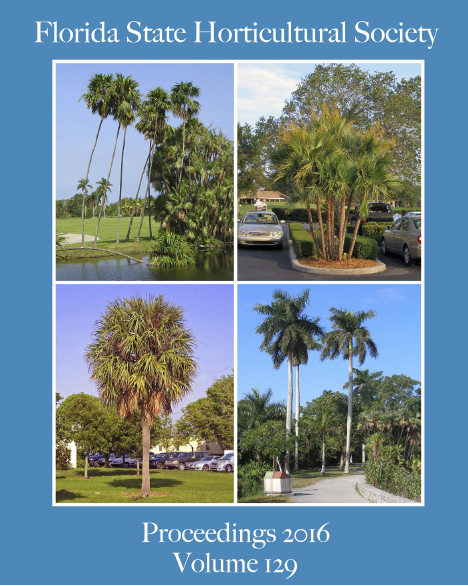Abstract
The Scotch Bonnet hot pepper (Capsicum chinense Jacq.) is native to Latin America and the Caribbean. However, ongoing research and outreach activities at the FAMU Research and Extension Center in Quincy have recognized its adaptability to the north Florida panhandle and its potential as a highly profitable alternative crop for limited resource farmers. Despite its profit potential, the crop yield is limited by cold temperatures during fall and winter months, when yield gradually declines and the entire plant dies from exposure to frost or freezing temperatures. A season extension and crop overwinter study using a low cost high tunnel (LCHT) was initiated in Spring 2015 to evaluate the feasibility of extending the hot pepper harvest season and overwintering potential of the crop. Growth and yield data for plants grown in open field and in LCHT were taken bi-weekly starting on 30 July 2015, and ending on 4 Feb. 2016. By 13 Jan. 2016, all plants in the open field without LCHT protection had died due to frost damage. All plants grown in LCHT remained alive but stopped producing entirely by Feb. 2016. The bi-weekly yield per 10 plants was 0.07 kg in the open field without LCHT and 0.13 kg in the LCHT. The results show that the growing season of Scotch Bonnet hot pepper was successfully extended and the crop successfully overwintered in a LCHT protected structure.

